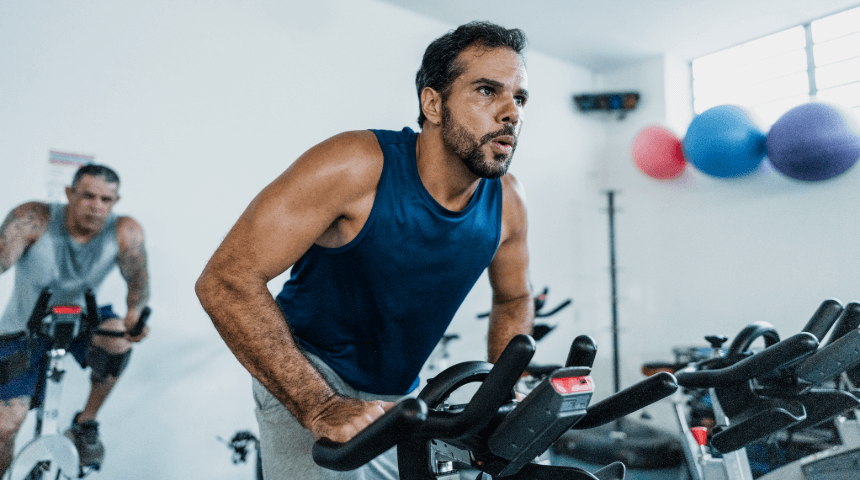Walking: A Simple but Effective Exercise for Physical and Mental Health
This blog was written in conjunction with Jordan Carbono and Gerry Samantha Eichelberger, Florida State University College of Medicine students.
In a world filled with weight-lifters and gym fanatics, we commonly feel pressured to engage in exercise routines that in some instances cause pain and wear to our joints and muscles. For the average person, finding the perfect balance among exercise, work, school, family and diet can be a challenge.
I have learned that exercising is more about creating a routine and habit. However, everyone struggles to remain consistent, whether you are the gym addict or the one who fails to obtain the 10,000-step goal. Creating an exercise habit for the benefit of your health starts with setting realistic goals. No one learned to walk before crawling and certainly didn’t run before walking. If you are facing these challenges on a daily basis, I invite you to participate in one of the simplest but most effective exercises — walking.
The Benefits of Walking
For centuries, our ancestors and early civilizations walked long distances to ensure their survival. With the advancement of technology, we do less and less of it. So what are the benefits of walking 30 minutes a day, 5 days a week?
- Walking is a natural insulin: Whether you have diabetes or not, aging causes insulin resistance, meaning your blood sugars tend to trend upwards. Walking stimulates your muscles to utilize the sugar in your blood stream. This in turn can lower blood sugar levels in the long-run and help stimulate insulin to work more efficiently.

- Walking makes your heart happy: Walking can help reduce your chances of developing coronary artery disease. Research shows that walking can decrease your systolic blood pressure (top number) by 5 points. In addition, increased weight loss from walking also can help lower cholesterol and blood sugar levels while burning calories. This helps decrease atherosclerosis, which clogs the arteries, and allows the heart to pump blood more effectively.
- Walking betters your mental health: Many people benefit from outdoor walks, especially as a form of decompression from a long work day. Additionally, some choose to engage other members of the family or friends to combine exercise with socialization. This can help reduce stress levels and ensure a feeling of companionship when walking with other family members and friends.
- Walking reduces mortality: A study conducted in 2011 by the Taiwan Department of Health noted that walking reduced mortality by 14 percent. This is partly due to the cardiovascular benefits mentioned above, and it means more time to play golf and spend with your loved ones.
How to Increase Walking
- Create a routine: The most important aspect of exercise is developing a realistic goal. Start low and build from there. The American Heart Association recommends 150 minutes per week — or 30 minutes a day, 5 times a week — of moderate exercise. This includes walking at a pace that causes your heart rate to go up or you to sweat.
- Exercise on weekends or off-days: If your job wipes all energy out of you, why not do a little exercise on the weekends or your days off? You can stay away from a structured routine and choose one that is best suited for you. Just try to be consistent with your workout plan to create the necessary discipline.
- Utilize exercise phone applications: If you always have your phone on you, use it to your advantage. Many apps are able to count your steps. The rule of thumb is 10,000 steps equals approximately 5 miles of walking. If you already have a smartwatch, you can use it to monitor your heart rate and track your workout routines.
- Park far away: When going to the grocery store and even to work, park your car as far from your destination as possible. This will motivate you to walk and get those extra steps!
- Split your walk time: Walk 10 minutes before work, 10 minutes after lunch and 10 minutes after work. This not only breaks up your walk time, but also helps keep you awake and alert throughout the day.
- Find a partner: Exercise is best when you have company. Find someone, whether it is your spouse, friend or even your dog. Together, you can keep each other motivated to continue walking.
The drop in temperature and humidity may be the incentive you need to start a walking routine. Over the next weeks, take time to enjoy a breath of fresh air for the benefit of your mental and physical health. By implementing just 30 minutes of walking a day, you can create a healthy exercise habit.
Choose to Stay in Touch
Sign up to receive the latest health news and trends, wellness & prevention tips, and much more from Orlando Health.
Sign Up for HealthBeat





